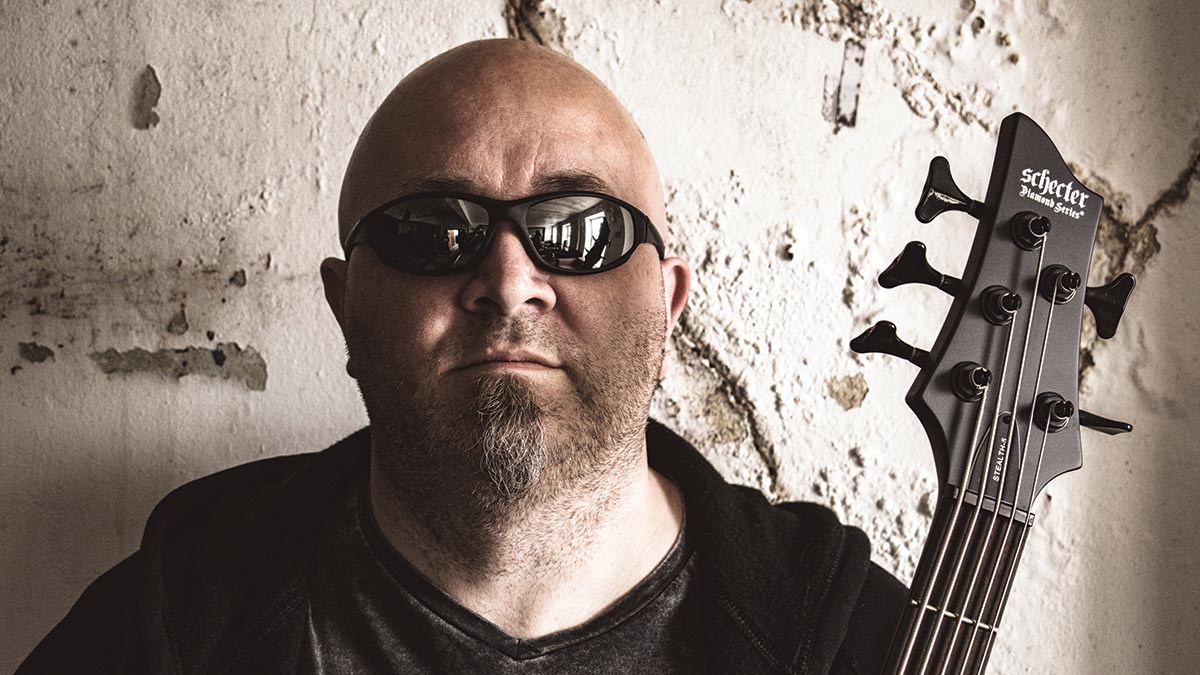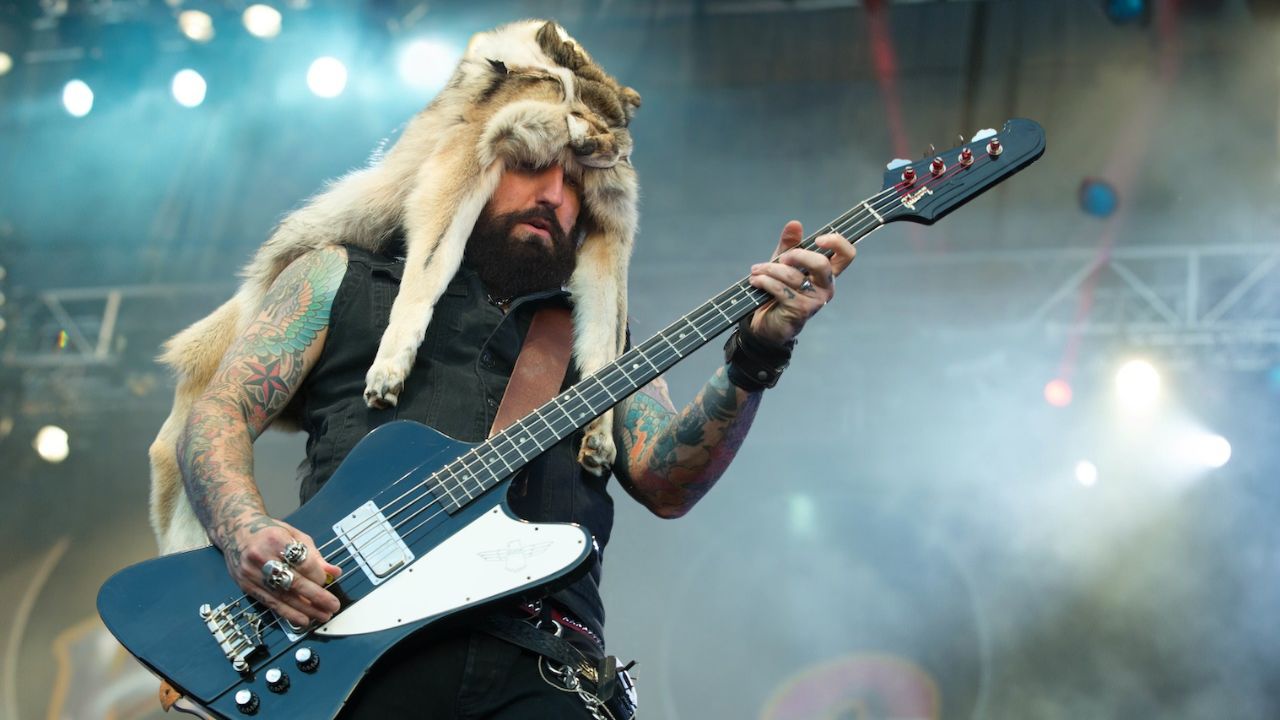Trapped in Purgatory's Jon Hoare: “I don’t go for expensive gear. If I can make it from the car to the rehearsal room in one trip, then it’s mission accomplished”
The bassist talks gear, influences, high school bands and Trapped in Purgatory's thrashy debut album, Damned Nation

All the latest guitar news, interviews, lessons, reviews, deals and more, direct to your inbox!
You are now subscribed
Your newsletter sign-up was successful
“I started learning bass when I was in high school. Two friends had bought starter guitars, and I was the designated bass player. We were going to form the best metal band ever. We had stage sets designed and a plan for a huge gig in the school hall before we could even play a note together.
“We really didn’t have a clue, although I think that out of the three of us, I ended up pursuing the dream more than either of them. I had lessons alongside a good friend of mine in school with a guitar teacher that they drafted in just to teach electric bass guitar and guitar.
“We managed to get in on the music at the right time, because Metallica, Iron Maiden and Anthrax were releasing killer albums and metal was on the rise. Our teacher basically worked out riffs to Dio and Scorpions songs, blues progressions and anything else that we wanted, recorded them on to cassette, and then we hurried home to learn them. Nothing formal, but great fun. The way learning an instrument should be.
“I started out with a Commodore model 181 hollow-body bass guitar. It was Japanese, made circa 1970, and my dad and I bought it from a guy in a housing estate somewhere. All I remember is that the guy had terrible halitosis. I’m not sure I could have bought a less suitable bass for metal.
“After that I had a cheap Precision copy, a Hohner Jack, a Columbus, a very neck-heavy Aria Pro II Libra, and others – all cheap, second-hand and pretty terrible. The Hohner Jack was okay, I suppose, but I never had a particularly high-quality bass until 1999, when my wife bought me my favorite-ever bass – a Warwick Corvette.
“I’ve just used it on the new Trapped in Purgatory album. I love the feel of playing it, and the growl of the bubinga wood and the pickup combination. I’ll probably be buried with it.
“I used to have a five-string Warwick, but I never really got on with it, so that went. I now have a Schecter Diamond five-string for downtuned stuff. The fact that I have small hands means that the four-string bass is always my go-to instrument. As well as the Corvette, I use a TC Electronic Thrust BQ500 amp, a Peterson StroboStomp HD tuner and a Behringer Bass Overdrive.
All the latest guitar news, interviews, lessons, reviews, deals and more, direct to your inbox!
“I don’t go in for expensive gear. If I can make it from the car to rehearsal room in one trip, then it’s mission accomplished. These days it’s more about studio equipment, songwriting and production than ploughing all my money into bass gear. I’ve had 1,000-watt Warwick valve amps with huge cabs, and all that stuff, but in the end, it makes very little practical difference to your music career.
“I don’t think that anyone ever gave me any specific advice about bass, but I read interviews with every bass player that I could, and took note of what people like my bass teacher said about the bass anchoring the band, and the music only really getting going when the bass kicks in. That resonated with me, and it’s what I still love about it.
“I remember I missed rehearsals when I went on holiday once, and when I got back, the band said that they were surprised at how much they really missed the bass.
“My influences are the obvious ones – Geddy Lee, Steve Harris, Jeff Berlin, but also people like David Ellefson, Frank Bello and Geezer Butler. I admire solid, tight players with a good sense of groove, as well as magicians such as John Entwistle who can dance around a fretboard and still lock into the groove. That’s always inspirational to watch.
“My band’s first full-length album is out now: it’s accessible, commercial thrash metal, with some more melodic elements thrown in. I also play some guitar on there and engineered the album, along with a fair amount of songwriting. We have a great bunch of musicians on there, and I’m very proud of the album. Do I still plan to take over the world? Watch this space...”
- Trapped In Purgatory's Damned Nation is out now via F.L.T Records
Bass Player is the world’s most comprehensive, trusted and insightful bass publication for passionate bassists and active musicians of all ages. Whatever your ability, BP has the interviews, reviews and lessons that will make you a better bass player. We go behind the scenes with bass manufacturers, ask a stellar crew of bass players for their advice, and bring you insights into pretty much every style of bass playing that exists, from reggae to jazz to metal and beyond. The gear we review ranges from the affordable to the upmarket and we maximise the opportunity to evolve our playing with the best teachers on the planet.

